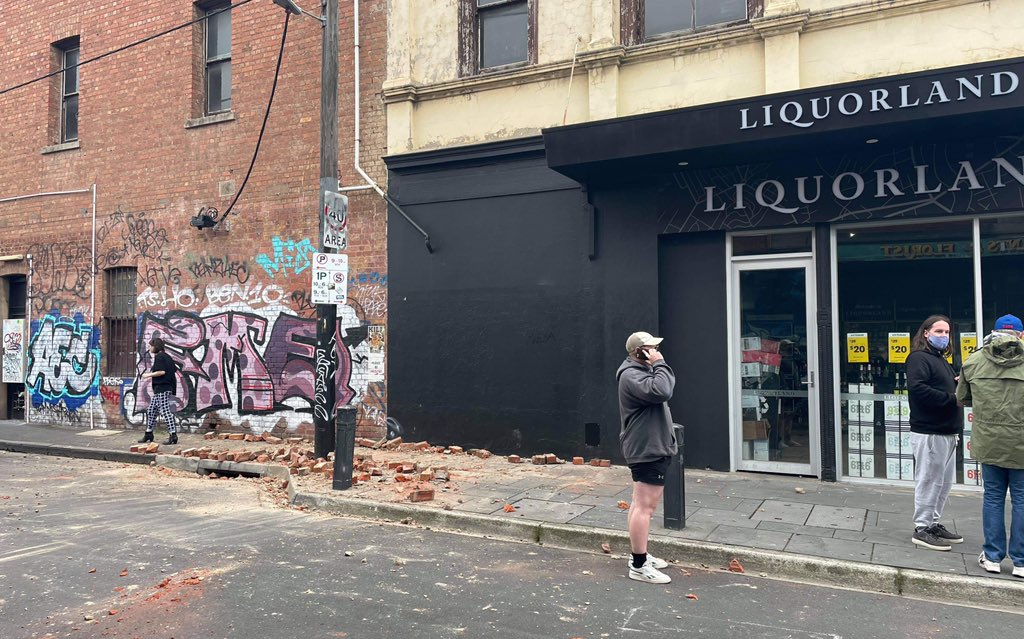Huixiang Research
[Australian Law 100 Questions and Answers] Who is responsible for the repair and maintenance of the house when renting a house in Australia? (I)
2023-08-29
When renting a house in Australia, the house will have problems that need to be repaired for different reasons, such as unclear light bulbs, burst water pipes, and failure of smoke alarms. And the house can also be damaged by natural disasters such as floods and earthquakes, what should tenants or landlords do about it? Today we are going to brief you on who is responsible for the repair and maintenance of damaged houses in different situations in NSW (hereinafter referred to as NSW).

General Obligations
Section 63 of the New State Residential Lease Act (2010) (Tenancies Act 2010 of Residential) stipulates the general obligation of the landlord in the lease relationship, that is, to provide and maintain the general reasonable condition of the house for the tenant (regardless of whether the tenant has noticed the disrepair of the house before moving into the house). Factors to be considered in this reasonable condition include the age of the house, rent, etc.
• The NSW Fair Trading states that the tenant is responsible for the general maintenance of the house to ensure that the house remains in the same condition as it was at the beginning of the rental relationship, including replacing light bulbs, cleaning windows, dusting, and if the rented house has a yard, lawn and garden, the tenant must also keep these areas clean and tidy. However, the tenant is not responsible for a reasonable degree of wear and tear on the house, such as faded curtains or frayed drawstrings, faded paint, furniture indentations on the carpet, etc.
General and Emergency Maintenance
The NSW Fair Trading prescribes general repairs and emergency repairs for home repairs.
General maintenance refers to the small-scale damage to the house, but does not affect the tenant's living, such as the falling off of doors and windows, loose floors, etc.
Emergency maintenance refers to the serious damage to the house, affecting the normal life of tenants or the possibility of personal and property damage, such as gas leakage, roof leakage, etc. In the two maintenance situations, the obligations of the tenant and the landlord are not the same.
General maintenance
NSW Fair Trading stipulates that for general maintenance matters, the tenant shall notify the landlord in writing of the place where the house needs to be repaired, and the repair can only be carried out after obtaining the landlord's written permission, which also includes compensation for the cost of the repair. In addition, even if the house has not been repaired, the tenant must not stop paying rent, otherwise the lease will be terminated due to breach of contract. However, if the damage to the house is caused by the tenant's intentional or gross negligence, the landlord or intermediary may require the tenant to repair the house or require the tenant to pay for the repair after the landlord or intermediary has repaired the house.
Emergency maintenance
• Section 62 of the New South Wales Residential Tenancy Act (2010) requires landlords to immediately respond to urgent repairs by tenants including:(1) a burst water pipe;(2) a blocked or damaged toilet system;(3) a serious roof leak;(4) a gas leak;(5) a dangerous electrical failure;(6) serious flood damage; and (7) serious storm or fire damage;(8) Serious failure of elevator or stairs, etc.
Article 64 of the New State Residential Leasing Law (2010) stipulates that if the tenant requests urgent maintenance, the landlord must repair the house within 14 days after receiving the written notice from the tenant. If the tenant cannot contact the landlord or the intermediary, or the landlord fails to repair the house within a reasonable time, the tenant can:(1) refer to the contents of the lease, understand the contact information of the designated maintenance personnel (if there is such an agreement in the lease);(2) arrange maintenance work;(3) and require the landlord to pay up to 1000 Australian dollars. The amount in excess of $1000 is paid by the tenant, who can apply to the court for an Urgent Hearing Order if he or she is unable to pay. If the landlord does not pay for the emergency repairs, the tenant can contact the NSW Fair Trading Lease Complaint Service (Tenancy Complaints Service).
• The following conditions are required for the landlord to pay for emergency repairs:
(1) The state of disrepair is not caused by the tenant's breach of the house lease agreement, and
(2) the tenant notifies the landlord or the landlord's agent of the state of disrepair, and
(3) The tenant has given the landlord reasonable time to carry out emergency repairs, and
(4) The tenant has repaired the residence according to the qualified personnel specified in the house lease agreement, and
(5) The Tenant, after carrying out the repairs, delivers or attempts to deliver to the Landlord or the Landlord's agent the cost of the repairs, the relevant receipts and copies of the relevant receipts.

smoke alarm
When renting in Australia, all rental properties must have smoke alarms that comply with the Australian Building Code (Building Code of Australia) and Australian standards. When the smoke alarm fails, the tenant or landlord must fulfill the corresponding obligations.
Obligations to be performed by the landlord
Section 64A of the New State Residential Lease Act (2010) requires landlords to ensure that smoke alarms in residential buildings work properly, otherwise landlords will be fined 20 units (in New State, 1 unit = 110 Australian dollars). According to the NSW Fair Trading, the following situations are considered to be a smoke alarm failure:(1) the smoke alarm is removed (and not replaced by a working smoke alarm);(2) the smoke alarm is not working (e. g. because the smoke alarm battery needs to be replaced);(3) the smoke alarm is malfunctioning (e. g. due to dust accumulation, insects and circuit corrosion).
In addition, the landlord must repair or replace the smoke alarm within two working days of discovering it is malfunctioning, including replacing the removable battery. However, replacing the battery requires:(1) the tenant to notify the landlord that the smoke alarm battery is invalid, except that the tenant notifies the landlord that they will replace the battery themselves;(2) the landlord himself notices that the tenant has not replaced the battery, or the landlord has not notified the tenant that the battery has been replaced.
• At the same time, the landlord needs to check the smoke alarm every year to ensure that it is working properly, which includes:(1) installing or replacing the removable battery every year (or replacing the lithium battery within the time limit specified by the smoke alarm manufacturer);(2) replacing the smoke alarm within 10 years after the production of the smoke alarm, or replacing the smoke alarm within an earlier time limit specified by the smoke alarm manufacturer;(3) Notify the tenant at least two working days in advance to inspect or evaluate whether the smoke alarm needs to be repaired or replaced;(4) Notify the tenant at least one hour in advance to replace or repair the smoke alarm;(5) Engage a certified electrician to repair or replace the hard-wired smoke alarm.
Tenant's obligations to be fulfilled
• If the smoke alarm fails (including the need to replace the battery), the tenant must notify the landlord. Tenants (except social housing tenants) can choose to replace the removable battery in the smoke alarm by themselves, but they need to notify the landlord or intermediary.
For other repairs or replacements of the smoke alarm, the tenant can:(1) replace the battery of the lithium battery smoke alarm, if the landlord or intermediary does not repair or replace the smoke alarm within 2 working days;(2) arrange a certified electrician Repair or replace the hard-wired smoke alarm, if the landlord or intermediary does not complete the repair or replacement of the smoke alarm within 2 working days.
However, there are exceptions to the above-mentioned obligations of landlords and tenants under the Strata Scheme.
Natural Disasters
The NSW Fair Trading states that both tenants and landlords have certain rights and responsibilities if a property is damaged by a natural disaster such as flood, fire or storm.
• For tenants, it is possible to temporarily move out of the house and return when repairs are completed. If only part of the house is uninhabitable, the tenant can choose to continue to live during the maintenance period, but it must be ensured that the damage to the house is relatively light and there is no subsequent safety risk. When the tenant temporarily moves out of the house or continues to live in a partially damaged house, he can negotiate with the landlord to waive or reduce the rent and need to sign a written agreement on the rent reached after negotiation.
• For the landlord, emergency repairs are required to the house, but if repairs cannot be provided in time, the repair time can be negotiated with the tenant. For tenants who move out of the premises, the landlord is not obliged to find temporary accommodation for the tenant or to pay the cost of renting the temporary accommodation for the tenant. And the landlord is not obliged to compensate for the damage caused by natural disasters to the tenant's furniture or personal belongings.
In addition, the tenant can terminate the rental agreement with the landlord during the maintenance of the house and re-sign a new agreement after the maintenance is completed. However, tenants need to be aware that the rent in the new agreement may be higher than the previous lease agreement. If the property is destroyed or completely uninhabitable, the tenant and the landlord may negotiate a termination of the lease (e. g., termination of the lease on the grounds that the agreement is "lapsed"). If the parties cannot reach an agreement, the tenant or landlord may terminate the lease by giving written notice to the other party. However, the landlord may not evict the tenant without a court order.

Dispute Resolution
For housing repair, maintenance or damage disputes, tenants can first negotiate with the landlord or intermediary to resolve the problem. However, if it cannot be resolved through negotiation, the tenant or landlord can:
1. [Contact NSW Fair Trading Lease Complaints and Disputes Service]]
• In some cases, NSW Fair Trading issue rectification orders to landlords for repairs to the premises;
• Or issue rectification orders to tenants requiring them to repair damage to the premises caused by individuals.
二、【诉诸NSW Civil and Administrative Tribunal(下称Tribunal)】
Landlords or tenants can file a lawsuit directly with the Tribunal to resolve disputes related to repairs, maintenance or damage to the property. Tribunal will issue the following decrees, including:
• Maintenance of the premises by the landlord
• Tenant pays rent to the Tribunal until repairs are completed
• The landlord reduces the rent of the tenant before the restoration of the house is completed
-Landlord compensates tenants for losses (e. g., after the tenant told the landlord that the water pipe was leaking, the landlord did not repair it in time, resulting in the water pipe leaking and damage to the tenant's property)
• Require tenants to repair personal damage
• Require the tenant to compensate the landlord for the cost of repairing damage to the premises personally caused by the tenant
• Require the landlord, intermediary or tenant to fulfil their obligations
Note: The content of the above article is for reference only and does not constitute legal advice. If you have any legal questions, please consult with Huixiang Sydney lawyer in detail.
Introduction of Huixiang (Sydney) Law Firm

Huixiang (Sydney) Law Firm (All Well Legal Sydney Office) is located in the core business district of Sydney, New South Wales, Australia, close to the court, Sydney City Hall and other government agencies, convenient transportation, obvious regional advantages.
At the level of external cooperation, Huixiang Sydney Branch has established long-term and stable cooperative relations with professional institutions in many countries around the world, and the development prospects of the law firm are promising. At the professional level, all the team members of Huixiang Sydney Branch have legal professional education background in Australia and China. With in-depth comparative study of the legal systems of China and Australia and a thorough understanding of the cultures of China and Australia, Huixiang Sydney's lawyer team has the ability to provide efficient, comprehensive and forward-looking professional services to Chinese and Australian investors, which can save communication costs for customers to the greatest extent and provide more efficient and targeted legal service programs.
Related recommend
Lawyer Research Center, China University of Political Science and Law
Beijing Lawyers Association



![[Australian Law 100 Questions and Answers] Who is responsible for the repair and maintenance of the house when renting a house in Australia? (I) [Australian Law 100 Questions and Answers] Who is responsible for the repair and maintenance of the house when renting a house in Australia? (I)](https://omo-oss-image.thefastimg.com/portal-saas/pg2024042915533862156/cms/image/aa26a9b7-6364-4d31-ac3d-81f50620cddb.png)







